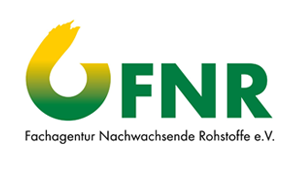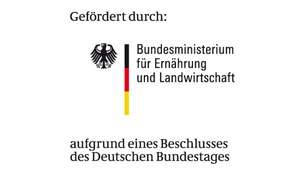Project
Itaconic Acid for Polyesters

Production of Organic Acids for Polyester Synthesis
Polyesters nowadays represent an important group of plastics which generally are obtained using fossil raw materials. Another, more sustainable approach, we work on in an ERA-IB project, is the use of renewable resources like chaff or orange peels for their production.
Background and Objective
Within this ERA-IB project processes for the production of bio-based polyester building blocks are developed in cooperation with other European partners. Our research is focused on itaconic acid, modified itaconic acid and lactic acid as organic acid monomer.
The production of organic acids from renewable resources especially residual materials like chaff or orange peels is one way not to compete with the food industry. These residual materials are first hydrolyzed to fermentable carbohydrates. The optimization of the pre-treatment and hydrolysis processes also include the use of specially developed enzymes provided by the partner ASA-Spezialenzyme. The obtained fermentable sugars are converted subsequently in a biotechnological way to itaconic acid. A major aspect of this conversion is the analysis of different microorganisms and the optimization of the reaction conditions towards highest itaconic acid yields. Itaconic acid itself is already a valuable product for polymer production. However its functionality can be varied selectively by modifying itaconic acid catalytically. In consequence, various monomers with different properties are produced, which set a broader range of polyester properties and application. For catalytic modification of itaconic acid, reactions such as hydrogenation and epoxidation are examined.
Approach
The Thünen part of the project is divided into three tasks that involve different questions.
In the first task various pretreatment and hydrolysis methods are combined and optimized for raw materials to achieve the highest possible concentration of sugar which is a precondition for efficient bioconversion. In the second, the bioconversion task, known microorganisms are optimized for the production of itaconic acid. In the third task of this project, itaconic acid is catalytically converted to different products, which can be used for polyester synthesis. The processes in all three tasks of the project shall be optimized mainly with regard to high product yields.
Results
Different agricultural residues and raw materials have been analyzed and characterized regarding their sugar composition. It was found that the pretreatment of the materials influence the expected sugar concentrations. Most likely improved treatments increase the sugar concentrations obtained in the subsequent hydrolysis.
Various yeasts (Psedozyma, Candida and Ustilago) and fungis, like Aspergillus terreus, were screened with regard to their itaconic acid production and its by-products. These microorganisms showed a growth on alternative substrates. Assumedly, hydolysates of chaff and orange peel can be used for itaconic acid production by optimizing the fermentation parameters.
The hydrogenation of itaconic acid to methyl succinic acid has already performed successfully with heterogeneous noble metal catalysts. Complete conversion and selectivity was achieved after a short reaction time. Current work is focusing on improvement the epoxidation of itaconic acid.
Thünen-Contact

Prof Dr. rer. nat. habil. Ulf Prüße
Involved Thünen-Partners
Involved external Thünen-Partners
-
H2Biyotek
(Ankara, Türkei) - Universidad Complutense de Madrid (UCM)
(Madrid, Spanien) -
Ekodenge AS
(Ankara, Türkei) -
Middle East Technical University (METU)
(Ankara, Türkei) -
ASA-Spezialenzyme GmbH
(Wolfenbüttel, Deutschland) -
Biopolis SA
(Valencia, Spanien)
Duration
5.2013 - 10.2016
More Information
Project funding number: 22029312
Funding program: EU – ERA-NET Industrial Biotechnology
Project status:
finished
Publications on the project
- 0
Krull S, Lünsmann M, Prüße U, Kuenz A (2020) Ustilago rabenhorstiana - An alternative natural itaconic acid producer. Fermentation 6(1):4, DOI:10.3390/fermentation6010004
- 1
Krull S (2018) Biotechnische Itaconsäureproduktion : Nutzung nachwachsender Rohstoffe und Prozessoptimierung. Göttingen: Cuvillier, 166 p, Braunschweig, Techn Univ, Fakultät für Lebenswissenschaften, Diss, 2018
- 2
Kuenz A, Krull S (2018) Biotechnological production of itaconic acid - things you have to know. Appl Microbiol Biotechnol 102:3901-3914, DOI:10.1007/s00253-018-8895-7
- 3
Krull S, Eidt L, Hevekerl A, Kuenz A, Prüße U (2017) Itaconic acid production from wheat chaff by Aspergillus terreus. Process Biochem 63:169-176, DOI:10.1016/j.procbio.2017.08.010
- 4
Krull S, Hevekerl A, Kuenz A, Prüße U (2017) Process development of itaconic acid production by a natural wild type strain of Aspergillus terreus to reach industrially relevant final titer. Appl Microbiol Biotechnol 101(10):4063-4072, DOI:10.1007/s00253-017-8192-x
- 5
Ciaston M, Cordes A, Krull S, Kuenz A, Oetken J, Prüße U, Storz H, Vorlop K-D (2017) Schlussbericht zum Vorhaben : Thema: Herstellung organischer Säuren für die Polyestersynthese ERA-IB: "Production of Organic Acids for Polyester Synthesis (POAP)" ; Laufzeit: 01.05.2013 bis 31.10.2016. Braunschweig: Johann Heinrich von Thünen-Institut, 103 p
- 6
Krull S, Eidt L, Kuenz A, Oetken J, Storz H, Prüße U (2016) Biotechnologisch erzeugte Itaconsäure aus agrarischen Reststoffen. Chemie Ingenieur Technik 88(9):1232, DOI:10.1002/cite.201650140
- 7
Krull S, Hevekerl A, Kuenz A, Prüße U, Vorlop K-D (2016) Biotechnologische Itaconsäureproduktion: Prozessoptimierung und Scale-up. Chemie Ingenieur Technik 88(9):1239
- 8
Oetken J, Storz H, Prüße U (2016) Optimierung von bekannten Vorbehandlungen für die Weizenkaff-Hydrolyse. Chemie Ingenieur Technik 88(9):1228-1239, DOI:10.1002/cite.201650121
- 9
Ciaston M, Prüße U, Storz H (2016) Prozess zur Synthese von Polyesterharzen mit einstellbarer Härte auf Basis von Itaconsäure. Chemie Ingenieur Technik 88(9):1230, DOI:10.1002/cite.201650120

![[Translate to English:] [Translate to English:]](/media/_processed_/3/6/csm_Hintergrund-Ausschnitt1_9daaef6b89.jpeg)
![[Translate to English:] [Translate to English:]](/media/_processed_/3/6/csm_Hintergrund-Ausschnitt1_0bd7111163.jpeg)







